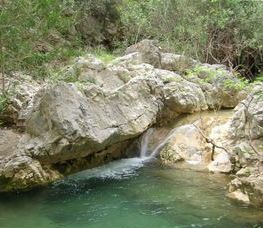HYDROGEOLOGY
Hydrogeology (often referred to as "Geohydrology" or "Groundwater Hydrology") is the science of groundwater. It examines how water infiltrates the subsurface, its flow and interaction with the geological formations.
Today, most of the world's major aquifers face declining water quality and depletion. These phenomena cause significant socioeconomic stress, threaten agricultural sustainability, and jeopardize food and economic security. Combined with a lack of sustainable water resource management policies, they lead to local and international conflicts. Water scarcity and climate change are two of the most pressing challenges facing our planet.
Therefore, a specialization in Hydrogeology is both a scientific and societal necessity. The curriculum was developed in close collaboration with the job market to ensure that the graduates develop in-demand skills and can follow diverse career path such as:
• Design and construction of water supply systems
• Estimation of sustainable groundwater reserves
• Assesement of groundwater quality for each intended use.
• Developement of numerical models of groundwater contamination and pollution risk
• Design of drainage and lowering levels systems associated with large-scale geotechnical and costuction projects
• Design of geothermal energy systems that rely on groundwater (heat pumps)
Studying Hydrogeology will help you understand how Nature works and will train you in logical and critical thinking. These skills are highly sought after by employers offering you diversified and varied career opportunities, not only in groundwater exploration, but also in the hydrocarbon exploration industry, civil engineering, government agencies and organizations, environmental management companies and academic institutions.
